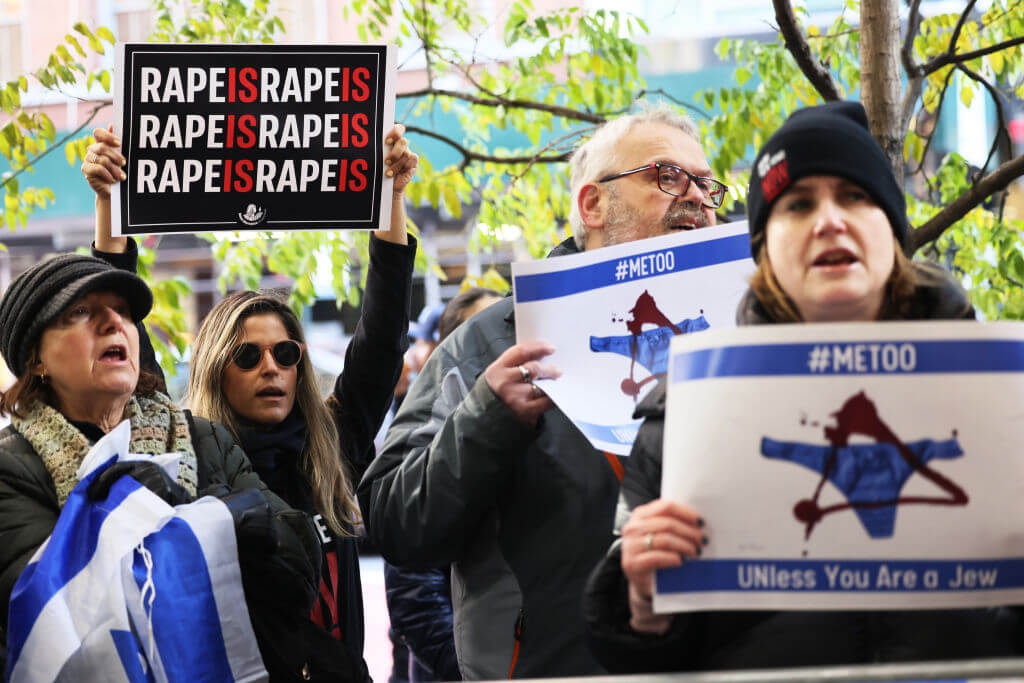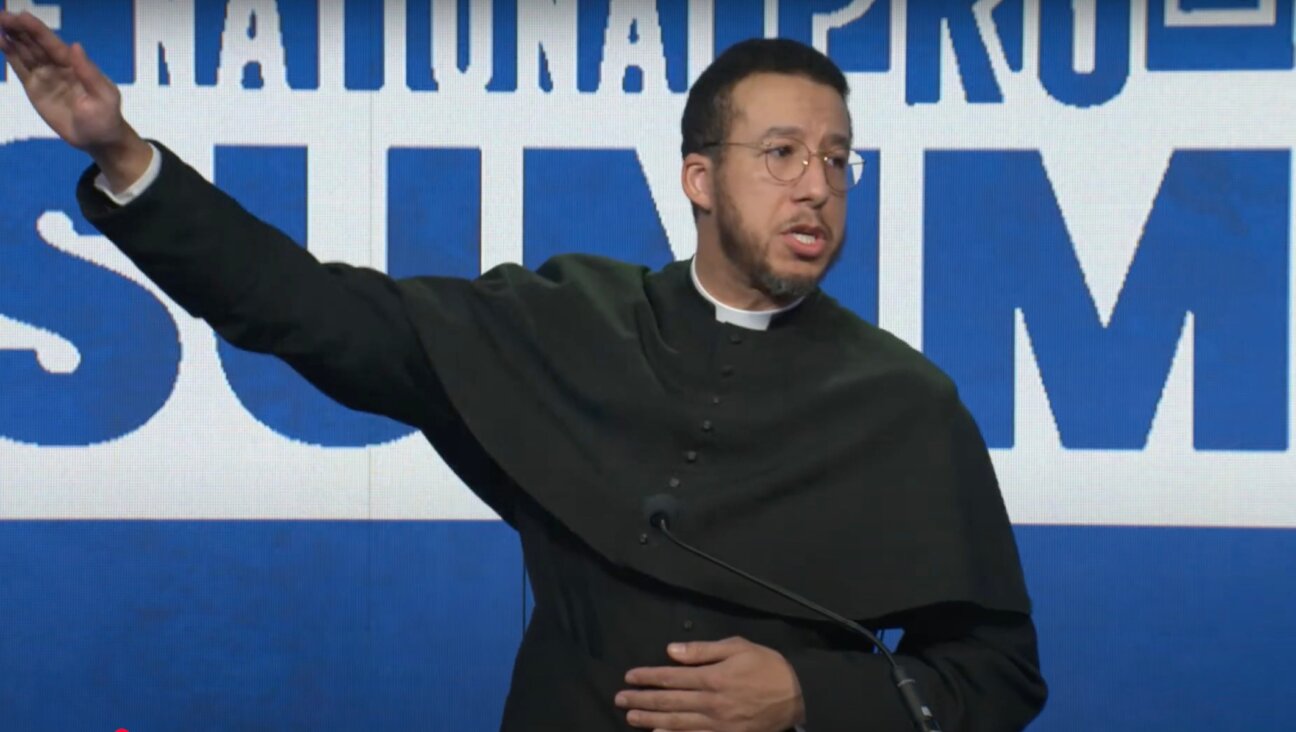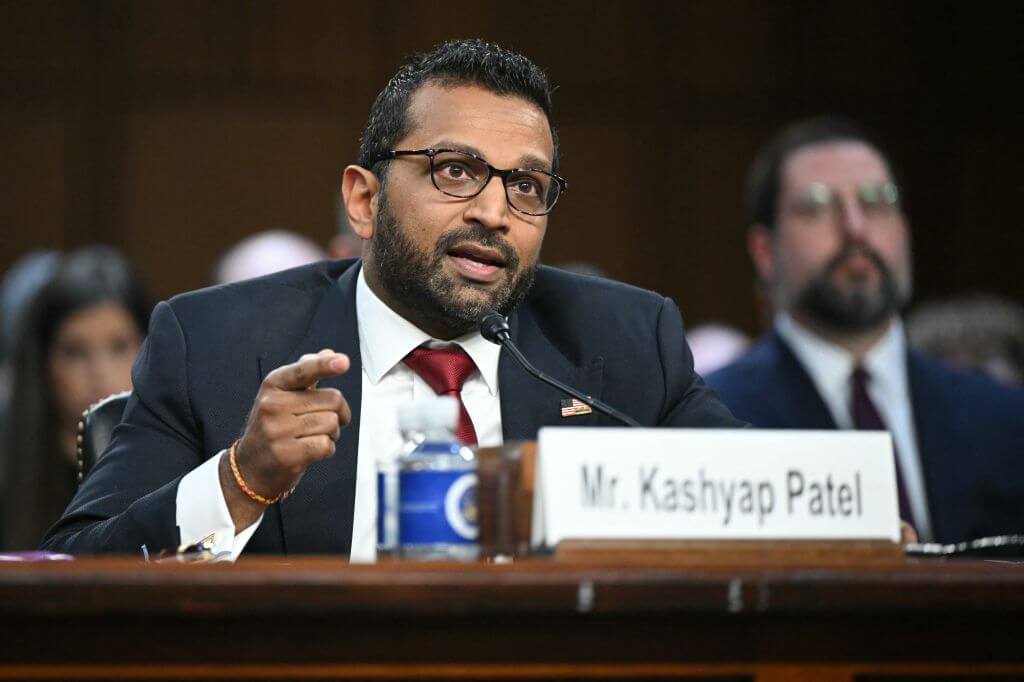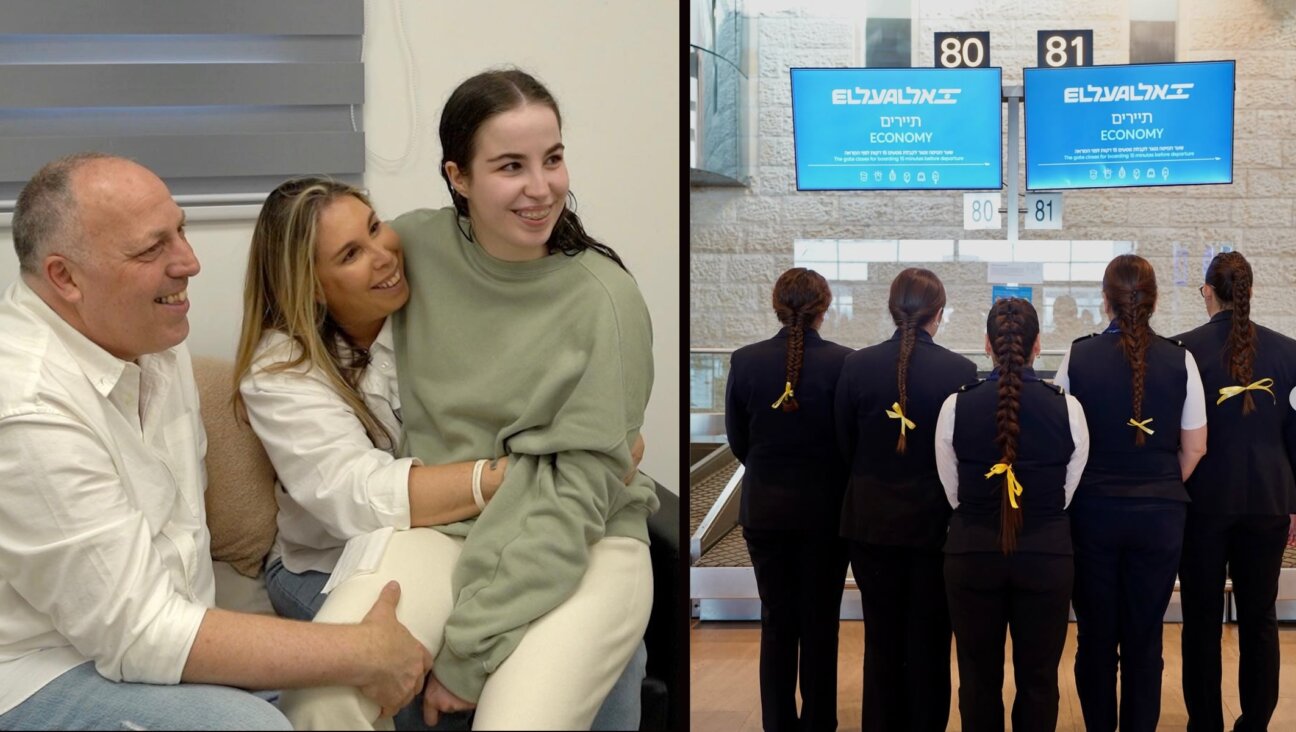After backlash over silence, UN Women tweets, then deletes, statement condemning Hamas attack in Israel
Word quickly spread among Jewish women activists and Israelis, reigniting their criticism of UN Women as holding a double standard when it comes to gender-based violence against Israeli women

Protestors gather at the offices of the United Nations Women on November 27, 2023 in New York City. Photo by Getty Images
(JTA) — Nearly 50 days after Hamas’ attack on Israel left 1,200 dead, and after weeks of criticism over its silence about allegations of sexual violence during the attack, the women’s rights group UN Women issued a statement condemning the terror group on Friday.
Then it deleted the post.
“We condemn the brutal attacks by Hamas on October 7 and continue to call for the immediate and unconditional release of all hostages,” read the initial statement, posted on UN Women’s instagram page. It was soon replaced with a statement that dropped the condemnation of Hamas and only called for the release of the hostages.
Word spread quickly among Jewish women activists and Israelis, reigniting their contention that UN Women — an official arm of the United Nations focused on promoting gender equality and women’s empowerment — holds a double standard when it comes to gender-based violence against Israeli women. Some of the critics — including Sheryl Sandberg, a former top Meta executive — have lobbied openly on the topic. Many have used the hashtag “#MeToo_UNless_UR_A_Jew.”
Reached for comment, UN Women told the Jewish Telegraphic Agency that the Instagram post had been scheduled in advance and was deleted because the message in it no longer reflected where the organization wanted to put its main focus.
“In any social media team managing multiple campaigns and during a very busy time like the one we are now with 16 Days of Activism, mistakes can occur,” a representative for UN Women said in a statement sent to the Jewish Telegraphic Agency.
In particular, said the media specialist, the release of some hostages over the weekend as part of a temporary truce changed the organization’s priorities.
“UN Women social media team had pre-planned days in advance [of] this particular post, but then the news broke on the release of hostages and we really wanted to focus on that,” she said. “UN Women has condemned the attacks by Hamas and the deaths of Israeli civilians from the beginning as well as called for the release of hostages, and we will continue doing so until the conflict ends. We have also called for all allegations of gender-based violence to be rigorously investigated, prioritizing the rights, needs, and safety of those affected.”
In late October, the United Nations General Assembly adopted a resolution calling for an immediate ceasefire in Gaza but voted down a provision condemning the Oct. 7 Hamas terrorist attacks. On Monday, Israel’s parliament, the Knesset, held a session on crimes against humanity committed against women during the Oct. 7 massacre.
After an initial statement on Oct. 13 condemning the attacks on civilians in Israel, all of UN Women’s public comments about the war and its impact on women had centered only on Palestinians. Last week, Sima Bahous, the group’s executive director, called for an extension of the current temporary truce into a permanent ceasefire and for the release of all hostages.
The National Council for Jewish Women, which had previously criticized UN Women’s silence on sexual violence against Israeli women, said the group’s second statement last week was inadequate.
“The delayed issuance of a statement that fails to explicitly address the severity of Hamas’ terrorist attack on Israel — such as the brutal murder of over 1,200 people in Israel, torture, and rape of women, as well as the targeting of civilians and families — is equally reprehensible,” the statement said. “Immediate and unequivocal acknowledgment of these atrocities is imperative, given the blatant violation of international law.”
A message from our Publisher & CEO Rachel Fishman Feddersen

I hope you appreciated this article. Before you go, I’d like to ask you to please support the Forward’s award-winning, nonprofit journalism so that we can be prepared for whatever news 2025 brings.
At a time when other newsrooms are closing or cutting back, the Forward has removed its paywall and invested additional resources to report on the ground from Israel and around the U.S. on the impact of the war, rising antisemitism and polarized discourse.
Readers like you make it all possible. Support our work by becoming a Forward Member and connect with our journalism and your community.
— Rachel Fishman Feddersen, Publisher and CEO





















